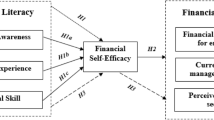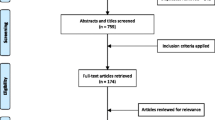Abstract
This study examined the association between literacy and quality of life among rural seniors in the Republic of Korea. A sample of rural seniors (N = 1,000) was surveyed by the Korea Rural Economic Institute in 2018, which assessed their literacy levels, their lifelong literacy education status and their quality of life. The authors’ analyses of the data collected in this survey reveal that higher literacy levels are positively associated with a greater likelihood of social inclusion and better mental health status among rural seniors. Furthermore, seniors with functional literacy demonstrated a higher probability of being included in the rural community compared to those with only basic literacy. Lastly, lifelong literacy education was found to play a crucial role in enhancing the literacy levels of rural seniors. As a policy recommendation, the authors suggest that local governments expand literacy education programmes to more rural areas of South Korea.
Résumé
L’importance de l’alphabétisation pour les seniors dans les zones rurales en Corée du Sud : une enquête concernant ses effets sur l’inclusion sociale et la santé mentale – Cette étude se penche sur le lien entre alphabétisation et qualité de vie pour les seniors dans les zones rurales en Corée du Sud. Une enquête a été menée en 2018 par l’Institut d’économie rurale de Corée sur un échantillon de seniors (N = 1 000) pour évaluer leur degré d’alphabétisation, leur situation en matière d’éducation tout au long de la vie et leur qualité de vie. Les analyses réalisées par les auteurs au sujet des données collectées dans ce cadre révèlent que les seniors des zones rurales avec un degré d’alphabétisation plus élevé ont plus de chances d’être inclus socialement et de jouir d’une meilleure santé mentale. En outre, elles montrent que, par rapport aux seniors avec un niveau de base, il est plus probable que ceux disposant d’un degré d’alphabétisation fonctionnel, soient inclus dans les communautés rurales. Enfin, l’étude indique que l’éducation tout au long de la vie joue un rôle décisif pour améliorer le degré d’alphabétisation des seniors dans les zones rurales. Les auteurs recommandent sur le plan politique que les collectivités locales étendent les programmes d’alphabétisation à davantage de zones rurales en Corée du Sud.

Similar content being viewed by others
Data availability
Not applicable.
Notes
While being aware that the literate–illiterate dichotomy is rejected by some scholars in favour of a continuum from low to high literacy (see for example Hanemann and Robinson 2022), our use of the term “illiteracy” throughout this article refers to no and very low literacy.
In rural South Korea, each county (gun 군/郡) has regional administrative towns (eup 읍/邑) and a number of townships (myeon 면/面), which are subdivided into villages (ri 리/里).
References
Barton, D., & Hamilton, M. (2000). Literacy practices. In D. Barton, M. Hamilton, & R. Ivanič (Eds.), Situated literacies: Theorising reading and writing in context (pp. 7–15). London: Routledge.
Chesser, A. K., Keene Woods, N., Smothers, K., & Rogers, N. (2016). Health literacy and older adults: A systematic review. Gerontology and Geriatric Medicine, 2, Article no. 11. https://doi.org/10.1177/2333721416630492
Choi, Y., & Lim, C. (2015). 비문해 농촌 여성노인의 문해교육 경험과 삶의 변화[The literacy education experience and changes in life of the illiterate rural female seniors]. 한국가족관계학회지 제 [Korean Journal of Family Relations], 20(1), 165–193.
EU (European Union) (2010). The European social fund and social inclusion: Summary fiche. Brussels: European Commission. Retrieved 12 January 2024 from https://ec.europa.eu/employment_social/esf/docs/sf_social_inclusion_en.pdf
Forsman, A., Herberts, C., Nyqvist, F., Wahlbeck, K., & Schierenbeck, I. (2013). Understanding the role of social capital for mental wellbeing among older adults. Ageing and Society, 33(5), 804–825. https://doi.org/10.1017/S0144686X12000256
Forte, D. (2009). Relationships. In M. Cattan (Ed.), Mental health and well-being in later life (pp. 84–111). Maidenhead: Open University Press/McGraw-Hill.
Freire, P., & Macedo, D. (2016 [1987]). Literacy: Reading the word and the world. London: Routledge.
Gray, W. S. (1969 [1956]). The teaching of reading and writing: An international survey. Monographs on Fundamental Education, No. 10. Enlarged edn. Paris: UNESCO. Retrieved 12 January 2024 from https://unesdoc.unesco.org/ark:/48223/pf0000002929
Hanemann, U., & Robinson, C. (2022). Rethinking literacy from a lifelong learning perspective in the context of the Sustainable Development Goals and the International Conference on Adult Education. International Review of Education, 68(2), 233–258. https://doi.org/10.1007/s11159-022-09949-7
Heo, Y., & Kee, Y. (2008). 노인여성학습자의 문해교육 참여에 관한 연구 [A study of participation of the aged women on literacy education]. 평 생 교 육 ․ HRD 연 구 [Korean Journal of Lifelong Education and HRD], 4(1), 29–57. https://doi.org/10.35637/klehrd.2008.4.1.002
Kim, S. I. (2009). 2008 국민의 기초 문해력 조사 개요 [Overview of the 2008 National Basic Literacy Survey]. 새국어생활 [New Korean Language Life], 19(2), 17–32.
Kim, J., Cho, W., Moon, M., Park, H., Cho, J. M., Park, J. H., & Song, J. (2014). Education for All 2015 national review report: Republic of Korea. Jincheon-gun: Korean Educational Development Institute et al. Retrieved 12 January 2024 from https://unesdoc.unesco.org/ark:/48223/pf0000229721
Kroenke, K., Spitzer, R. L., & Williams, J. B. (2003). The Patient Health Questionnaire-2: Validity of a two-item depression screener. Medical Care, 41(11), 1284–1292. https://doi.org/10.1097/01.mlr.0000093487.78664.3c
Kroenke, K., Spitzer, R. L., Williams, J. B., Monahan, P. O., & Löwe, B. (2007). Anxiety disorders in primary care: Prevalence, impairment, comorbidity, and detection. Annals of Internal Medicine, 146(5), 317–325. https://doi.org/10.7326/0003-4819-146-5-200703060-00004
Kroenke, K., Spitzer, R. L., Williams, J. B., & Löwe, B. (2009). An ultra-brief screening scale for anxiety and depression: The PHQ–4. Psychosomatics, 50(6), 613–621. https://doi.org/10.1176/appi.psy.50.6.613
Kwak, S., & Lee, S. (2003). 평생교육 참여결정이론에 관한 연구 [A study of participation theory in lifelong education]. 교육과학연구 [Journal of Education Studies], 34(3), 87–133.
Lehner, E., Thomas, K., Shaddai, J., & Hernen, T. (2017). Measuring the effectiveness of critical literacy as an instructional method. Journal of College Literacy and Learning, 43(1), 36–53. Retrieved 12 January 2024 from https://academicworks.cuny.edu/bx_pubs/22
Levine, K. (1982). Functional literacy: Fond illusions and false economies. Harvard Educational Review, 52(3), 249–266. https://doi.org/10.17763/haer.52.3.77p7168115610811
Ma, S. (2014). 농업인의 교육참여 실태와 관련변인-2006년 정부의 농업 교육 투자 확대 이후 변화 탐색 [Farmers’ education participation and its related variables: Exploring the changes since 2006 Agricultural Education Reform]. 농업교육과 인적자원개발 [Journal of Agricultural Education and Human Resource Development], 46(2), 83–106.
Merriam-Webster (n.d.). Literate. In Merriam-Webster dictionary [online resource]. Springfield, MA: Merriam-Webster. Retrieved 6 February 2024 from https://www.merriam-webster.com/dictionary/literate
NILE (National Institute for Lifelong Education) (2018). 2017성인문해능력조사[2017 Adult Literacy Survey]. Seoul: National Center for Adult Literacy Education. Retrieved 12 January 2024 from https://www.nile.or.kr/usr/wap/detail.do?app=11526&seq=724&lang=ko#
Panagioti, M., Skevington, S. M., Hann, M., Howells, K., Blakemore, A., Reeves, D., & Bower, P. (2018). Effect of health literacy on the quality of life of older patients with long-term conditions: a large cohort study in UK general practice. Quality of Life Research, 27(5), 1257–1268. https://doi.org/10.1007/s11136-017-1775-2
Papen, U. (2005). Adult literacy as social practice: More than skills. London/New York: Routledge.
Rassool, N. (1999). Literacy for sustainable development in the age of information. Bristol: Multilingual Matters. https://doi.org/10.21832/9781800418035
Reder, S. (2008). Scaling up and moving in: Connecting social practices views to policies and programs in adult education. Literacy and Numeracy Studies, 16(2), 35–50.
Serper, M., Patzer, R. E., Curtis, L. M., Smith, S. G., O’Conor, R., Baker, D. W., & Wolf, M. S. (2014). Health literacy, cognitive ability, and functional health status among older adults. Health Services Research, 49(4), 1249–1267. https://doi.org/10.1111/1475-6773.12154
Shim, J., Sung, J., & Seo, H. (2018). 제5장 사람이 돌아오는 농촌만들기 [Chapter 5 Creating a rural community where people return]. Naju-si: Korea Rural Economic Institute. Retrieved 12 January 2024 from https://aglook.krei.re.kr/main/uEventData/1/download/683/5756/pdf
Shin, M. (2006). 한국 여성노인의 문해교육 현황과 정책 [Literacy education for the female elderly in Korea]. 한국동북아논총 Journal of Northeast Asian Studies, 12(45), 261–284.
Shor, I. (1999). What is critical literacy? Journal of Pedagogy, Pluralism, and Practice, 1(4), Article no. 2. Retrieved 12 January 2024 from https://digitalcommons.lesley.edu/jppp/vol1/iss4/2
Stromquist, N. (2006). The political benefits of adult literacy. Background paper prepared for the EFA Global Monitoring Report, 2006. Paris: UNESCO. Retrieved 12 January 2024 from https://unesdoc.unesco.org/ark:/48223/pf0000146187
Sultan, S., Rofiuddin, A., Nurhadi, N., & Priyatni, E. T. (2017). The effect of the critical literacy approach on pre-service language teachers’ critical reading skills. Eurasian Journal of Educational Research, 71, 159–174. https://doi.org/10.14689/ejer.2017.71.9
Tett, L., & Maclachlan, K. (2007). Adult literacy and numeracy, social capital, learner identities and self-confidence. Studies in the Education of Adults, 39(2), 150–167. https://doi.org/10.1080/02660830.2007.11661546
UIL (UNESCO Institute for Lifelong Learning) (2019). 4th Global Report on Adult Learning and Education. Leave no one behind: Participation, equity and inclusion. Hamburg: UIL. Retrieved 12 January 2024 from https://unesdoc.unesco.org/ark:/48223/pf0000372274
UIL (2022). 5th Global Report on Adult Learning and Education. Citizenship education: Empowering adults for change. Hamburg: UIL. Retrieved 16 February 2024 from https://unesdoc.unesco.org/ark:/48223/pf0000381666
UIS (UNESCO Institute for Statistics) (n.d.) Elderly literacy rate [online glossary]. Montreal: UIS. Retrieved 16 February 2024 from https://uis.unesco.org/en/glossary-term/elderly-literacy-rate
UIS (2017). Literacy rates continue to rise from one generation to the next. Fact Sheet No. 45 FS/2017/LIT/45. Montreal: UIS. Retrieved 12 January 2024 from https://unesdoc.unesco.org/ark:/48223/pf0000258942
UN (United Nations) (2016). Leaving no one behind: The Imperative of inclusive development. Report on the world social situation 2016. ST/ESA/362. New York: United Nations. Retrieved 12 January 2024 from https://www.refworld.org/docid/5840368e4.html
UNESCO (United Nations Educational, Scientific and Cultural Organization) (2004). The plurality of literacy and its implications for policies and programmes. Paris: UNESCO. Retrieved 12 January 2024 from https://unesdoc.unesco.org/ark:/48223/pf0000136246
UNESCO (2005). EFA global monitoring report 2006: Literacy for life. Paris: UNESCO. Retrieved 12 January 2024 from https://unesdoc.unesco.org/ark:/48223/pf0000141639
Wolf, M. S., Gazmararian, J. A., & Baker, D. W. (2005). Health literacy and functional health status among older adults. Archives of Internal Medicine, 165(17), 1946–1952. https://doi.org/10.1001/archinte.165.17.1946
Zheng, M., Jin, H., Shi, N., Duan, C., Wang, D., Yu, X., & Li, X. (2018). The relationship between health literacy and quality of life: A systematic review and meta-analysis. Health and Quality of Life Outcomes, 16(1), 201–201. https://doi.org/10.1186/s12955-018-1031-7
Author information
Authors and Affiliations
Corresponding author
Additional information
Publisher's Note
Springer Nature remains neutral with regard to jurisdictional claims in published maps and institutional affiliations.
Rights and permissions
Springer Nature or its licensor (e.g. a society or other partner) holds exclusive rights to this article under a publishing agreement with the author(s) or other rightsholder(s); author self-archiving of the accepted manuscript version of this article is solely governed by the terms of such publishing agreement and applicable law.
About this article
Cite this article
Ma, S., Kim, N. & An, S. The importance of literacy for rural seniors in the Republic of Korea: An investigation of its effect on social inclusion and mental health. Int Rev Educ 70, 143–162 (2024). https://doi.org/10.1007/s11159-023-10042-w
Accepted:
Published:
Issue Date:
DOI: https://doi.org/10.1007/s11159-023-10042-w




